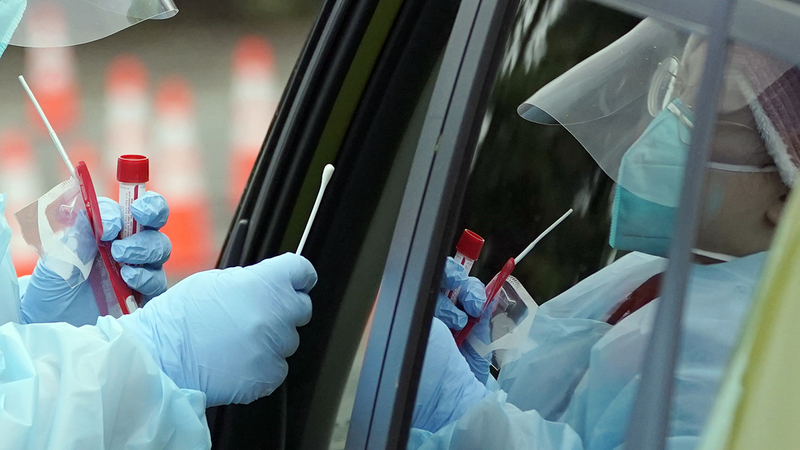The omicron BA.2 subvariant is inherently more contagious and better at evading vaccines than any other Covid strain but vaccinated people don’t transmit it as easily as the unvaccinated, according to a Danish study published Sunday.
The sub-variant, which was first detected in early December, already accounts for the vast majority of Covid-19 cases in Denmark and India uploaded to the genome database, Gisaid, in the week ending January 31. It is also spreading fast in South Africa, Germany, and the UK.
The study, which analyzed coronavirus infections in more than 8,500 Danish households between December and January, found that people infected with the BA.2 subvariant were roughly 33% more likely to infect others, compared to those infected with BA.1.
"We conclude that Omicron BA.2 is inherently substantially more transmissible than BA.1 and that it also possesses immune-evasive properties that further reduce the protective effect of vaccination against infection," the study's researchers said.
Researchers found that BA.2 spread between members of the same household within seven days of the first infection in 39 percent of cases, compared with 29 percent of cases for the original version of Omicron. This would suggest that BA.2 is 34 percent more transmissible than the original version, known as BA.1.
That suggests BA.2 is around 33% more infectious than BA.1, he added.
BA.2 cases have also been registered in the United States, Britain, Sweden, and Norway, but to a much lesser extent than in Denmark, where it accounts for roughly 82% of cases.
The study also showed that BA.2 was relatively better than BA.1 at infecting vaccinated and booster-vaccinated people, indicating greater "immune evasive properties" of the subvariant.
But vaccines still played an important role, the study underlined, since both booster-vaccinated and fully vaccinated individuals were less like to get infected and transmit either subvariants, compared to those not vaccinated.
The sub-variant, which was first detected in early December, already accounts for the vast majority of Covid-19 cases in Denmark and India uploaded to the genome database, Gisaid, in the week ending January 31. It is also spreading fast in South Africa, Germany, and the UK.
The study, which analyzed coronavirus infections in more than 8,500 Danish households between December and January, found that people infected with the BA.2 subvariant were roughly 33% more likely to infect others, compared to those infected with BA.1.
"We conclude that Omicron BA.2 is inherently substantially more transmissible than BA.1 and that it also possesses immune-evasive properties that further reduce the protective effect of vaccination against infection," the study's researchers said.
Researchers found that BA.2 spread between members of the same household within seven days of the first infection in 39 percent of cases, compared with 29 percent of cases for the original version of Omicron. This would suggest that BA.2 is 34 percent more transmissible than the original version, known as BA.1.
That suggests BA.2 is around 33% more infectious than BA.1, he added.
BA.2 cases have also been registered in the United States, Britain, Sweden, and Norway, but to a much lesser extent than in Denmark, where it accounts for roughly 82% of cases.
The study also showed that BA.2 was relatively better than BA.1 at infecting vaccinated and booster-vaccinated people, indicating greater "immune evasive properties" of the subvariant.
But vaccines still played an important role, the study underlined, since both booster-vaccinated and fully vaccinated individuals were less like to get infected and transmit either subvariants, compared to those not vaccinated.


















